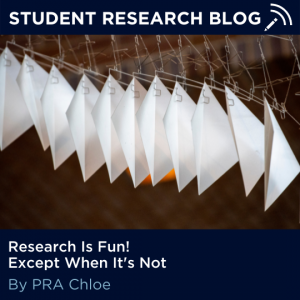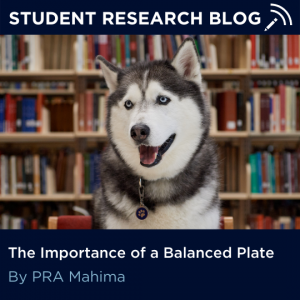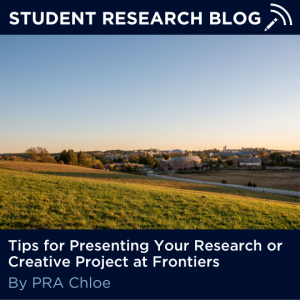By Anabelle Bergstrom, Peer Research Ambassador
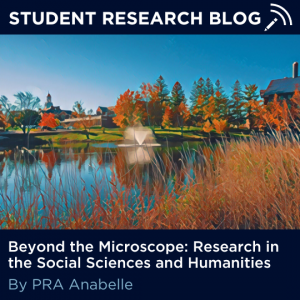 Research is often advertised as being an aspect of the college experience that is geared towards STEM majors. You spend hours in a lab, dissecting animals, and writing detailed mathematical reports on your findings. You suit up in your lab coat, safety goggles, and closed-toes shoes to look at different molecules under a microscope. Did you know there is another world in research, one world that exists in your dorm room, or at your state’s legislative building, or through conversations with your peers?
Research is often advertised as being an aspect of the college experience that is geared towards STEM majors. You spend hours in a lab, dissecting animals, and writing detailed mathematical reports on your findings. You suit up in your lab coat, safety goggles, and closed-toes shoes to look at different molecules under a microscope. Did you know there is another world in research, one world that exists in your dorm room, or at your state’s legislative building, or through conversations with your peers?
Many students are surprised to know that social sciences and humanities majors can participate in research just like their STEM peers. These opportunities may not be as visible as those pertaining to biology, but I can tell you from experience they do exist. You just have to know where to look. Continue reading
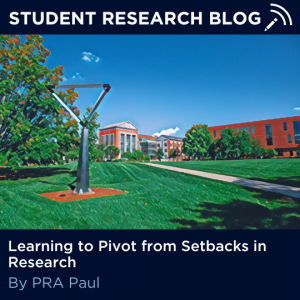

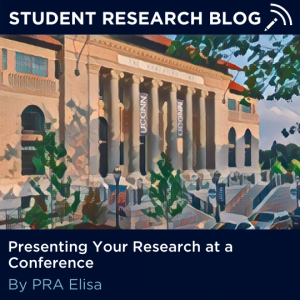
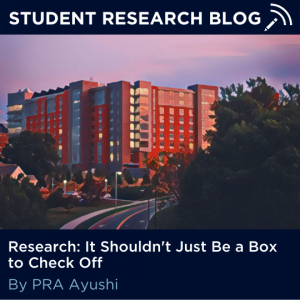

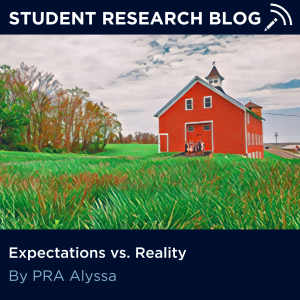 By Alyssa Daniels, Peer Research Ambassador
By Alyssa Daniels, Peer Research Ambassador